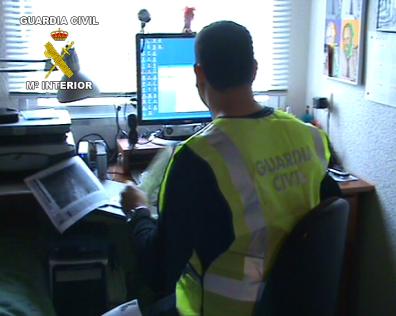

Keys Points for Public-private Security Collaboration
Public institutions are strengthening their collaboration with the private sector to improve security and risk prevention. In this context, the Protection and Security Service (SEPROSE) of Spain’s Guardia Civil (Civil Guard) has reinforced its COOPERA Programme, to which companies can adhere in order to integrate their services and enhance their capabilities. The National Police has its Red Azul (Blue Network) programme, which has been increasing its cooperation with individuals. And the Basque Ertzaintza and the Catalan Mossos d’Esquadra also have their own programmes, USPIOSP for the former and the Xarxa de Col•laboració for the latter. For its part, Madrid’s 112 Safety and Emergency Agency has continued to innovate and with different initiatives and technological developments to improve service quality. It has made safety improvements in collaboration with public and private institutions, carrying out different evacuation drills. Meanwhile, the National Institute for Health and Safety at Work (INSST) is collaborating with companies to generate knowledge and provide technical assistance and spread ideas for improving the health and safety of the work environment.
Paloma Velasco, executive director of the Spanish Association of Security Companies (AES), emphasised that the relationship is completely fluid. 'We must never forget that private security is subordinate to public security, with which there is very close cooperation and collaboration, and information and collaboration must always be complete and fully coordinated'.
In this regard, both the National Police and the Civil Guard have programmes to facilitate this coordination. 'The National Police has a programme called Red Azul and the Guardia Civil has COOPERA. All companies and individuals involved in private security who wish to do so can register with these programmes, even associations like AES, which is registered in both. In this way, as we receive e-mails alerts and newsletters, we promptly forward them to our partners'.
The COOPERA Programme has become 'the main working tool for strengthening mutual operational support through two-way information sharing', said Captain Francisco Javier Córdoba Ollero of the Private Security Collaboration Department of SEPROSE (Protection and Security Service). 'This programme enables us to stay in continuous contact with members about information relevant to citizen security, such as suspicious or criminal activities and modus operandi that we detect, so that private security agencies can assess the risks and take the appropriate protection measures'.
Emergencies
Examples of cooperation include the Madrid 112 Security and Emergency Agency, which in recent years has continued to innovate and implement different initiatives and technological improvements to service quality. It has also carried out security improvements in collaboration with various public and private institutions, including several evacuation drills and an automated closure plan for accesses to the main building, centralising it and allowing remote control of doors and window shutters from different locations.
Occupational safety
In the workplace, the National Institute for Occupational Safety and Health cooperates with the private sector in different areas. On the one hand, it collects 'information received from employers’ associations and trade unions, as well as any information that comes directly from companies or private bodies'. This information is taken into consideration 'when establishing the organisation’s lines of action'. On the other hand, this collaboration entails organising 'outreach events, such as workshops and courses, to spread specialist knowledge in the health and safety field'. And, thirdly, 'it provides technical and other assistance, responding to queries raised by different sectors and institutions'.
As part of its objective of improving the worker's health and safety conditions in the public and private sectors, the National Institute for Occupational Safety and Health has set itself the following aims: 'to facilitate compliance with legal obligations regarding the prevention of occupational risks; promote improved health and safety conditions for workers; act as channel for specialised information from abroad to Spanish companies; and to carry out and facilitate R&D&I in the field of prevention'.





